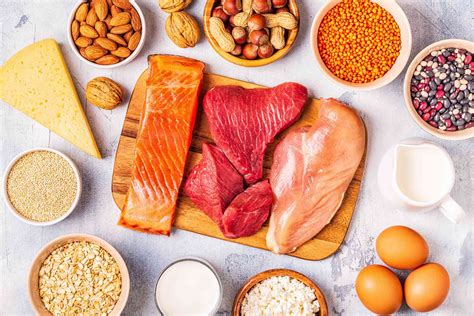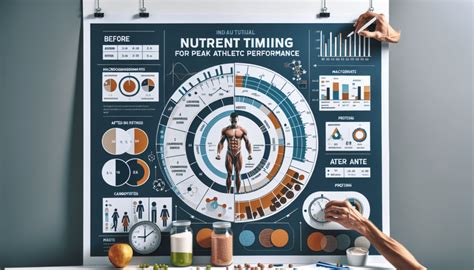What’s the optimal post-workout nutrition for rapid muscle recovery & growth?

The Golden Hour: Understanding Post-Workout Nutrition
After a strenuous workout, your body enters a critical phase where it’s primed to absorb nutrients, repair damaged muscle fibers, and replenish energy stores. This period, often referred to as the ‘anabolic window,’ is crucial for maximizing the benefits of your training. While the concept of a super-strict 30-minute window has been debated, it’s undeniable that providing your body with the right nutrients relatively soon after exercise significantly aids recovery and growth.
Optimal post-workout nutrition isn’t just about what you eat, but also when and in what quantities. It’s a strategic approach to fuel your body’s repair and adaptation processes, paving the way for stronger, more resilient muscles.

Key Macronutrients for Muscle Recovery & Growth
1. Protein: The Building Block of Muscle
Protein is paramount for muscle repair and synthesis. During exercise, muscle fibers undergo microscopic damage. Consuming adequate protein provides the amino acids necessary to rebuild these fibers, making them stronger and larger. Aim for a high-quality protein source immediately after your workout. Whey protein is a popular choice due to its rapid absorption and rich amino acid profile, but casein, egg, or plant-based proteins like soy or pea also work effectively.
- Recommended Intake: Generally, 20-40 grams of protein post-workout is effective for most individuals, depending on body weight and training intensity.
- Sources: Whey protein shake, Greek yogurt, chicken breast, fish, eggs, cottage cheese, tofu.
2. Carbohydrates: Replenishing Energy Stores
Intense exercise depletes your body’s glycogen stores, which are your primary source of energy. Replenishing these carbohydrate reserves is essential for restoring energy levels and preventing muscle breakdown for fuel. Combining carbohydrates with protein has been shown to enhance insulin response, which helps drive nutrients into muscle cells and further supports protein synthesis.
- Recommended Intake: A 2:1 or 3:1 ratio of carbohydrates to protein is often recommended, translating to 40-80 grams of carbohydrates.
- Sources: Bananas, rice, potatoes, oats, whole-grain bread, fruit juice, sports drinks.

3. Healthy Fats: A Supporting Role
While healthy fats are crucial for overall health and hormone production, their immediate post-workout consumption should be moderated. Fats slow down digestion, which can impede the rapid delivery of protein and carbohydrates to your muscles. However, including a small amount of healthy fats in your post-workout meal won’t negate the benefits, especially if your overall daily fat intake is balanced.
- Sources: Avocado, nuts, seeds, olive oil.
The Importance of Hydration and Micronutrients
Beyond macronutrients, hydration is non-negotiable. You lose significant fluids through sweat during exercise, and even mild dehydration can impair recovery and performance. Water is essential for every bodily function, including nutrient transport and metabolic processes.

Micronutrients (vitamins and minerals) also play a vital, though less direct, role in muscle recovery. Antioxidants can help combat exercise-induced oxidative stress, while electrolytes (sodium, potassium) lost through sweat need to be replenished. A balanced diet rich in fruits, vegetables, and whole foods will typically cover these needs.
Timing Is Key: The Anabolic Window Revisited
While the immediate 30-minute ‘anabolic window’ might be less rigid than once thought, consuming your post-workout meal within 1-2 hours after training is generally accepted as optimal. This timing capitalizes on increased blood flow to muscles and enhanced insulin sensitivity, which together create an ideal environment for nutrient uptake and muscle repair.
For those training frequently or intensely, or on an empty stomach, a quicker intake might be more beneficial. Listen to your body and experiment to find what works best for your recovery and performance goals.

Sample Optimal Post-Workout Meals
- Option 1 (Shake): Whey protein (25g) + Banana (1 medium) + Almond milk (1 cup). Quick and easy for rapid absorption.
- Option 2 (Meal): Grilled chicken breast (4-5 oz) + Sweet potato (1 medium) + Steamed broccoli (1 cup). A balanced whole-food option.
- Option 3 (Vegetarian): Greek yogurt (1 cup) + Berries (1 cup) + Granola (1/2 cup). Provides protein, carbs, and some fiber.
- Option 4 (Vegan): Tofu scramble (4 oz tofu) + Brown rice (1 cup cooked) + Mixed vegetables.

Conclusion
Achieving rapid muscle recovery and growth isn’t just about what you do in the gym; it’s heavily influenced by your post-workout nutrition strategy. Prioritizing a timely intake of high-quality protein and carbohydrates, coupled with adequate hydration, creates the ideal physiological environment for your muscles to repair, adapt, and grow stronger. Consistent application of these nutritional principles will significantly accelerate your progress towards your fitness goals.









